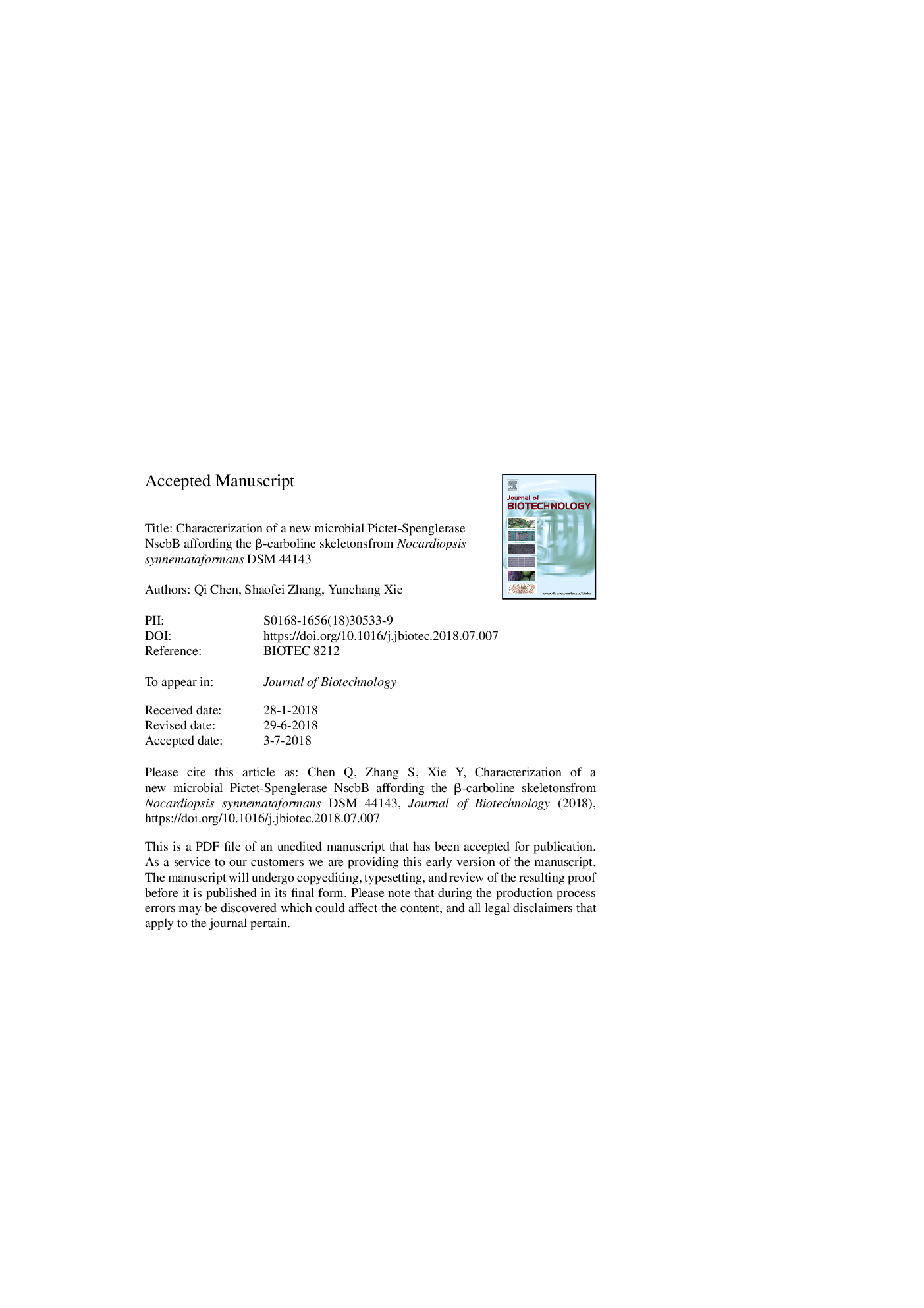| Article ID | Journal | Published Year | Pages | File Type |
|---|---|---|---|---|
| 6490159 | Journal of Biotechnology | 2018 | 28 Pages |
Abstract
The enzymatic Pictet-Spengler (PS) reaction, catalyzed by Pictet-Spenglerase (PSase), is the feature of β-carboline (βC) alkaloid biosynthesis. NscbB is a rare microbial PSase discovered from a cryptic β-carboline alkaloid biosynthetic gene cluster (BGC) in the Nocardiopsis synnemataformans DSM 44143 (kidney transplant patient derived) by homologous alignment with its well-characterized counterpart McbB. The biochemical analysis showed that NscbB could catalyze l-tryptophan (KMâ¯=â¯89.64â¯Â±â¯8.69â¯Î¼M) and methylglyoxal (KMâ¯=â¯147.70â¯Â±â¯16.38â¯Î¼M), without cofactors, to form the two βC skeletons 1-acetyl-3-carboxy-β-carboline and 1-acetyl-β-carboline in vitro. Additionally, the heterologous expression of nscbB in E. coli BL21 (DE3) revealed the efficient bioproductivity of NscbB to bioproduce two βC skeletons, 1-acetyl-3-carboxy-β-carboline (5.5â¯mg/L) and 1-acetyl-β-carboline (3.1â¯mg/L), within 16â¯h fermentation. These results demonstrate NscbB is a novel and practical microbial PSase, which is useful for future bioactive βC alkaloid exploitation and development.
Related Topics
Physical Sciences and Engineering
Chemical Engineering
Bioengineering
Authors
Qi Chen, Shaofei Zhang, Yunchang Xie,
